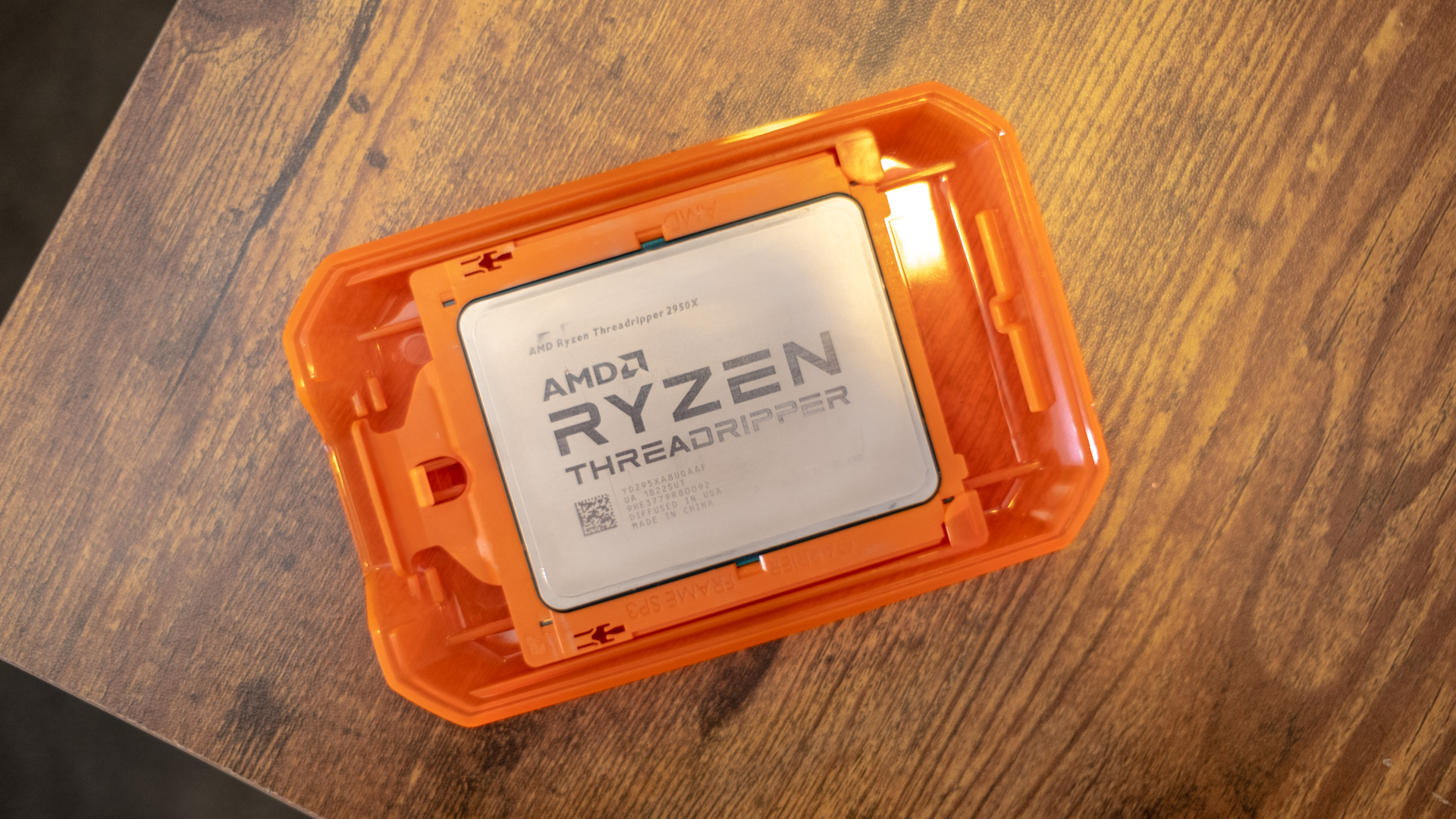TechRadar Verdict
Skip the pricey Intel Skylake-X CPUs and even AMD’s new WX-series. Price-to-performance, you won’t find a better value out of a high-end desktop processor than the Ryzen Threadripper 2950X.
Pros
- +
Way better single-core performance
- +
As performant as pricier Intel Skylake-X
- +
Reasonably priced HEDT chip
Cons
- -
Does not run any cooler
- -
Power draw increased
Why you can trust TechRadar
It’s not an exaggeration to say that the Ryzen Threadripper was the face that launched a dozen chips. On the heels of AMD introducing its Zen-based high-end desktop (HEDT) processors, Intel reacted in kind with the (now defunct) Kaby Lake-X series and shortly after with even more competitive Core X series chips in the form of Skylake-X.
Eventually, these two titans’ HEDT chips would finally meet in the ring with an all-out brawl between the Intel Core i9-7980XE and AMD Ryzen Threadripper 1950X. Although AMD’s flagship 16-core Ryzen Threadripper processor costed half as much, it couldn’t match up to 18-core Intel Skylake X CPU.
Fast forward to today, and AMD has introduced a new flagship Ryzen Threadripper 2950X that’s not only cheaper but more powerful in every way.
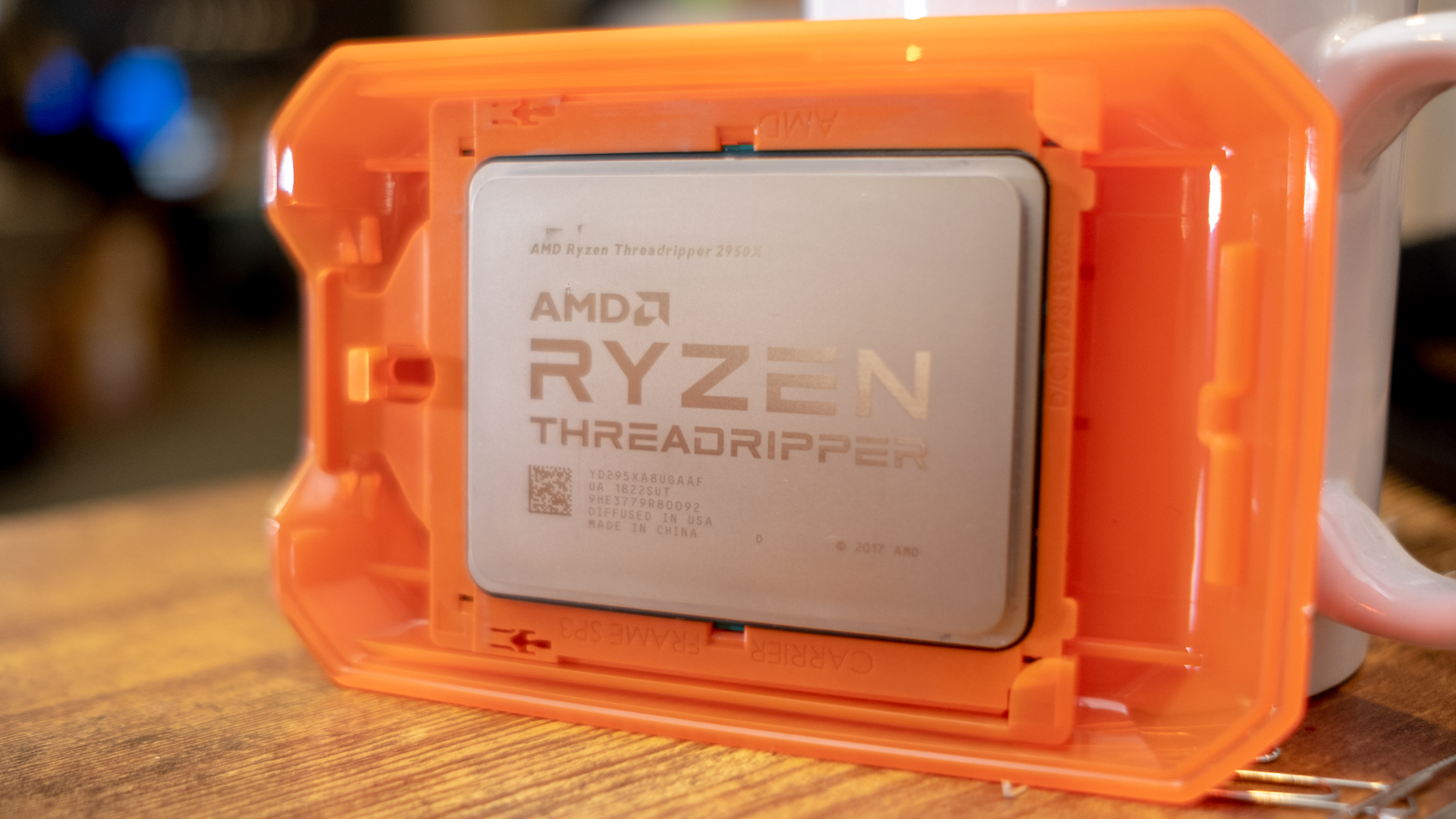
Cores: 16
Threads: 32
Base clock: 3.5GHz
Boost clock: 4.4GHz
L3 cache: 32MB
TDP: 180W
Price and availability
The AMD Ryzen Threadripper 1950X was already one of the fairly more affordable high-core-count processors you could buy when it originally launched at $999 (£999, AU$1,439).
Surprisingly, AMD actually cut the price on the Ryzen Threadripper 2950X to $899 (£849, AU$1,369), making it just a little more accessible to streamers and would-be PC enthusiasts.
Of course, this lower price also further raises the 2950X’s value proposition against the $1,699 (about £1,289, AU$2,289) Intel Core i9-7960X and $1,999 (£1,649, AU$2,729) Core i8-7980XE.

Features and chipset
Although the Ryzen Threadripper 2950X doesn’t get a core-count boost or feature four-core complexes, like the Ryzen Threadripper 2990WX and 2970WX, it’s still a beast of a chip. This HEDT chip might still feature 16-cores and 32-threads as it predecessor, but it’s also 0.3-0.5Ghz faster than the 1950X it replaces.
This is largely thanks to AMD’s new Zen+ 12nm architecture that grants 200MHz higher clock speeds as well as reducing the amount of core voltage required at any frequency by 80-120mV. On paper, Ryzen Threadripper 2nd Generation CPUs are said to deliver 16% more performance with 11% lower power consumption – though, the latter doesn’t hold true in our testing – against each of its first-generation counterparts.
That’s even further enhanced by Threadripper 2nd Generation features, like Extended Frequency Range 2 (XFR2) now enabling 16% additional processor performance across any number of cores and threads. What’s more, AMD has added a new Precision Boost Overdrive tool into the Ryzen Master application, allowing users to maximize their CPU’s power draw and frequency so long as it doesn’t melt (and they first sign away the processor’s warranty).
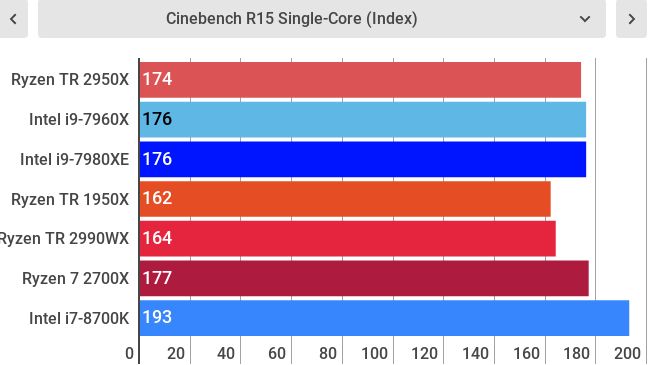
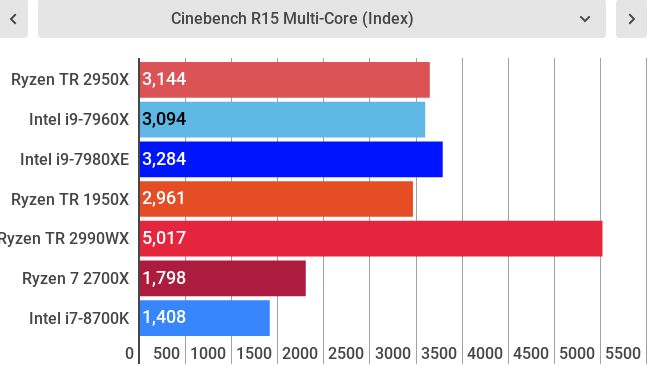
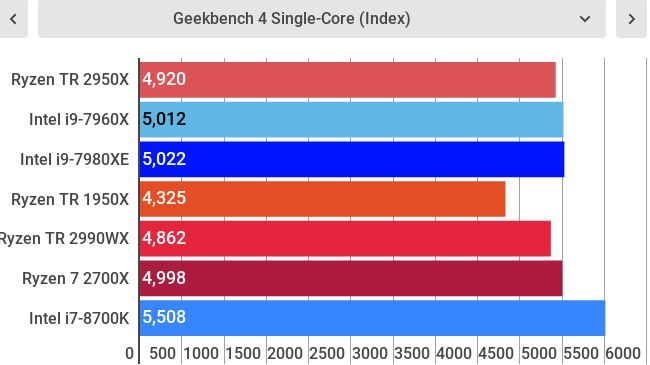
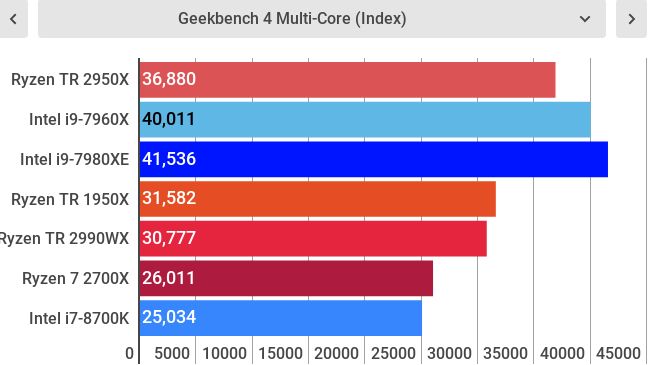
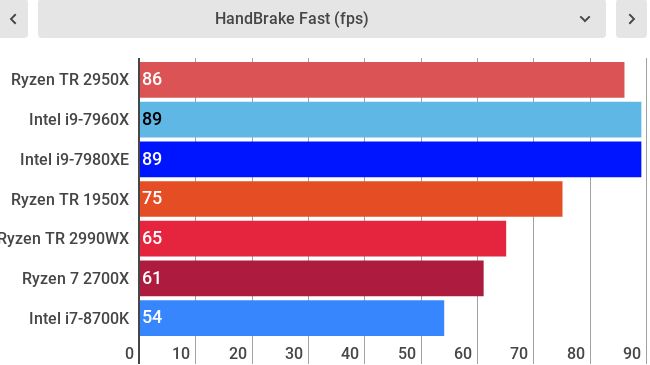
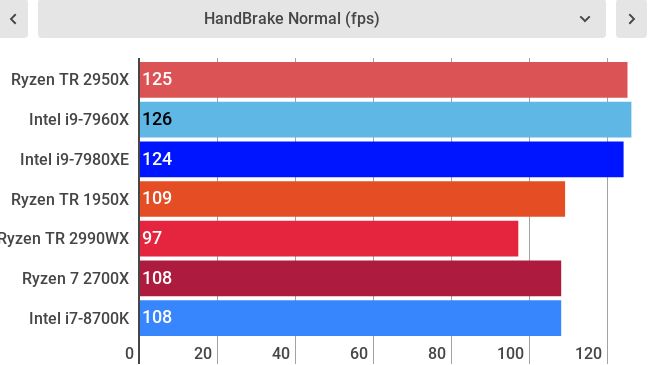
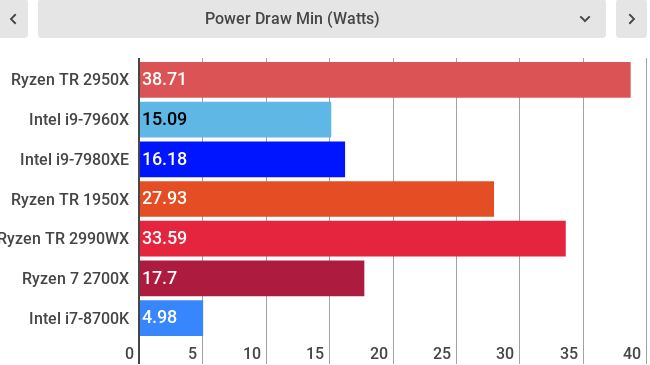
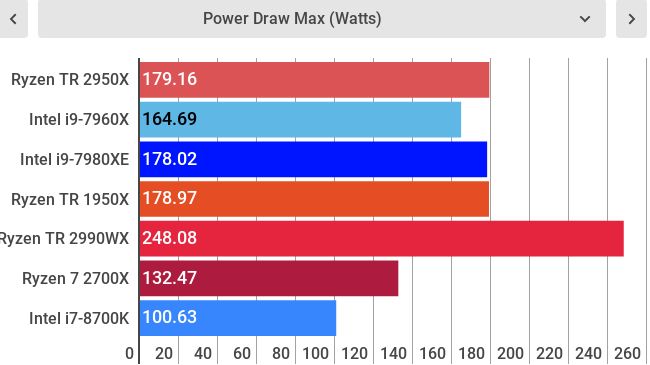
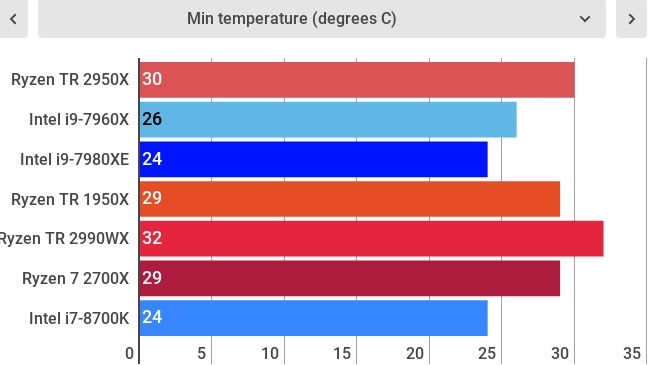
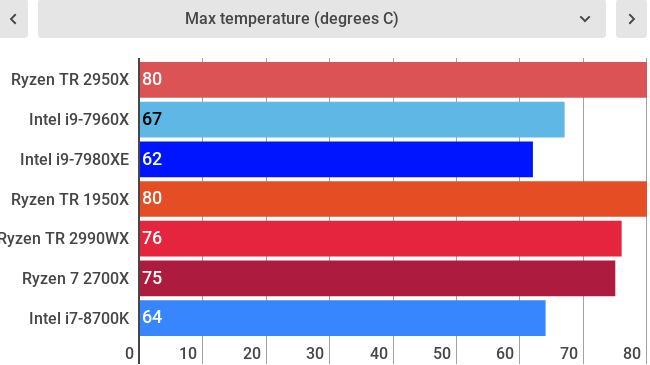
GPU: Nvidia GTX 1080 Ti (11GB GDDR5X VRAM)
RAM: 32GB G.Skill Trident Z RGB (DDR4 3,200MHz)
Motherboard: Asus ROG Zenith Extreme
Power Supply: Thermaltake Toughpower Grand 1200W
Storage: 500GB Samsung 970 Evo M.2 SSD (NVMe PCIe 3.0 x4)
Cooling: NZXT Kraken x62
Operating system: Windows 10
Performance
Thankfully, the AMD Ryzen Threadripper 2950X is as impressive in benchmarks as it does look on paper. One of the most immediate improvements you can notice from our testing is single performance is much better this go around, and that’s largely thanks to this chip being able to reach a 400MHz higher boost clock. This in turn leads to slightly better multi-core benchmark runs, but the improvement isn’t as significant.
Compared to its Intel 16-core counterpart, the Core i9-7960X, and even the 18-core Core i9-7980XE, the Threadripper 2950X is pretty much just as fast, winning some contests in Cinebench and Handbrake while losing the match in Geekbench.
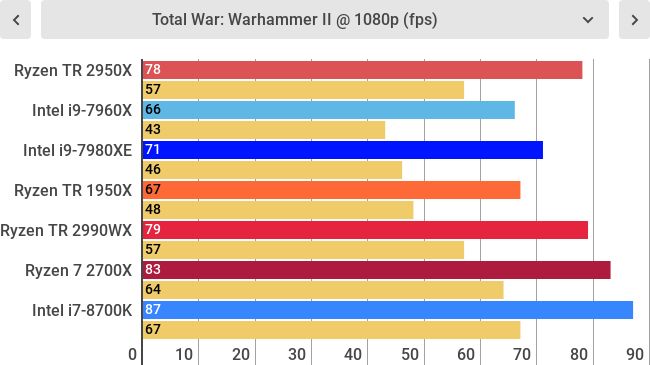
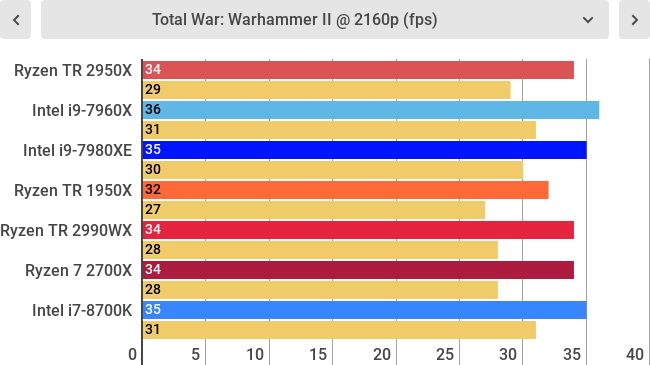
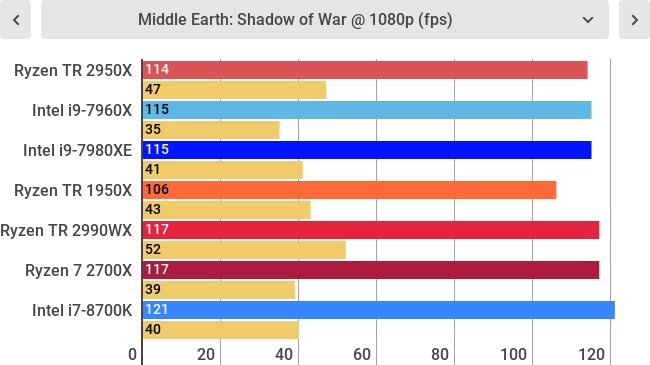
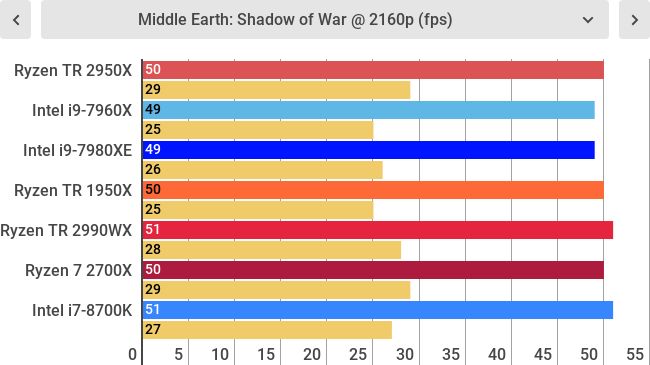
On the gaming front, the Ryzen Threadripper 2950X performs pretty much exactly the same as its two Intel rivals. However, we’ll say it once again: if you’re looking to maximize your in-game frame rates, the Intel Core i7-8700K and AMD Ryzen 7 2700X do a much better job at a fraction of the price for a HEDT chip.
No one should be buying the Ryzen Threadripper 2950X looking for the ultimate gaming processor. Rather, this is a CPU that delivers more than serviceable gaming performance while still having plenty of processing power leftover to drive a livestream, gameplay capture, video encoding or any of your other daily tasks at the same time.
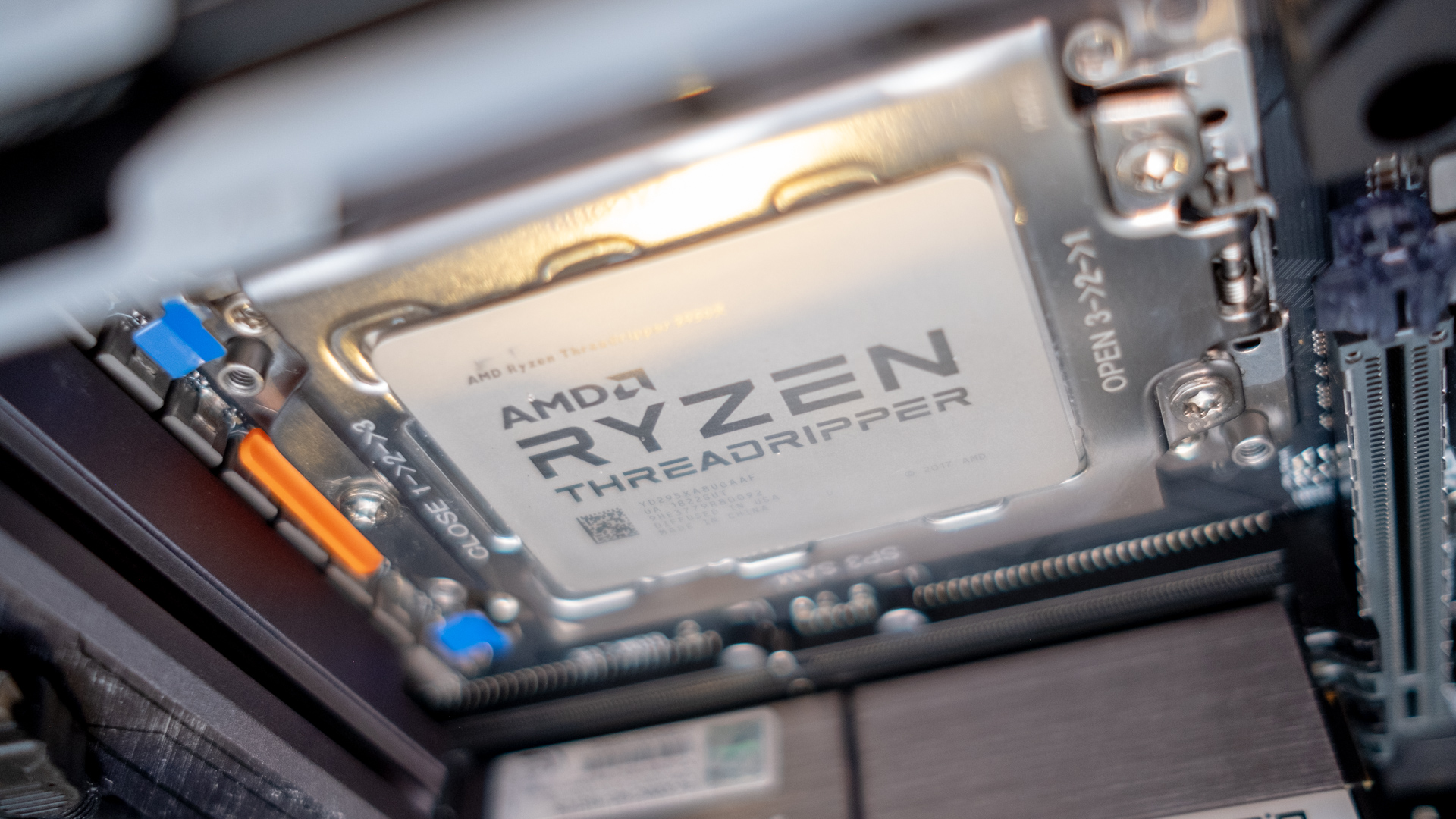
Final verdict
The AMD Ryzen Threadripper 2950X marks a noticeable improvement from its predecessor in every way. From a value perspective, this is basically the best deal you can get on a high-end desktop chip currently. The Intel Core i9-7960X and Core i9-7980XE, and even the Ryzen Threadripper 2990WX, are just too expensive for their own good.
Comparatively, the AMD Ryzen Threadripper 2950X either beats or is as good as the next HEDT at a much more approachable $899 (£849, AU$1,369) price. That is still far more money any regular PC user should plop down on a processor, but for YouTubers as well as other streamers and other creative types, this is the processor of your dreams.
Kevin Lee was a former computing reporter at TechRadar. Kevin is now the SEO Updates Editor at IGN based in New York. He handles all of the best of tech buying guides while also dipping his hand in the entertainment and games evergreen content. Kevin has over eight years of experience in the tech and games publications with previous bylines at Polygon, PC World, and more. Outside of work, Kevin is major movie buff of cult and bad films. He also regularly plays flight & space sim and racing games. IRL he's a fan of archery, axe throwing, and board games.
